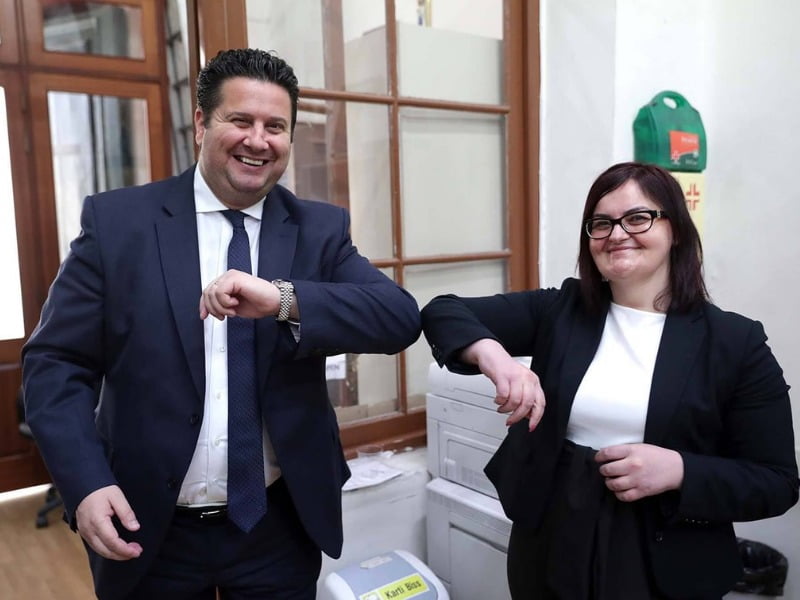The nomination of Victoria Buttigieg for the post of Attorney General (AG) has perplexed many in the criminal justice system.
Among the two major weaknesses that legal sources have highlighted is her lack of immersion in criminal justice. While now being appointed chief prosecutor, she has no experience as a prosecutor in the criminal court.
The issue with this inexperience is that the AG’s role requires a cumulative and vast knowledge of case law or sentencing to be able to make perceptive and sharp decisions on the go.
Such cumulative knowledge of criminal case law can only be accrued through experience as well as reading or studying, a large number of sentences. Buttigieg lacks that knowledge.
This may be redeemed by her deputy, Philip Galea Farrugia, who has much of that armour and whose handling of the ongoing high profile case connected to the assassination of Daphne Caruana Galizia has earned him additional respect. In fact, the history of AGs in Malta shows that it’s been common for the AG to assign one or the other branch of cases, say criminal cases, to a more knowledgeable deputy.
Yet it is now in doubt whether Farrugia, one of the applicants to the post of AG, will remain in his role following the appointment of Buttigieg who made a sideways dash from State Advocate to now AG. It would be disastrous if the AG’s office had to lose the prosecutor who is most experienced and knowledgeable in criminal prosecutions at this juncture.
https://www.facebook.com/philip.galeafarrugia/posts/1039555959813438
Not only does the AG’s office have to pursue high profile prosecutions of powerful people, it has also gained new powers and wider workload at the implementation stage.
The AG is set to take on prosecutions of all crimes punishable by more than two years’ imprisonment (prosecution of crimes punishable by less than 2 years imprisonment shall remain the responsibility of the police), and the new prosecutors that have to be employed to handle the extra workload – usually young lawyers fresh out of university – will look to the top for answers.
Another new power vested in the AG is the ability to order the police to conduct an investigation.
The concern in legal circles is that the Buttigieg may not be the AG to trigger investigations into powerful people, even to bear down on recalcitrant police if needed. Does Buttigieg possess the strength of character and fearlessness to wield these new powers with vigour?
Strength of character is also needed for decisions on whether to initiate prosecutions into powerful people in cases where the evidence is not obvious and instead has to be wrung out in the course of a trial. This could determine whether a decision leans one side or another in such cases.
The consensus is that such mettle has been absent in the last several years, under the tenure of Peter Grech, and the question now is whether Buttigieg is substantially different in this sense. There is doubt in legal circles about whether she would have the courage to take the battle to crooks in the elite.
There is also surprise at Buttigieg’s dash back to AG to take the throne. Buttigieg was an assistant AG who was appointed to the post of State Advocate last December. The post of State Advocate was created through the splitting of roles of the AG – this makes the two more or less equal in rank.
Why did Buttigieg leave her job as Assistant AG to apply for the post of State Advocate, which she got, and then eight months later applied for the vacancy of AG?
Confidence in the selection process for the AG is also scant. Legal scholar Kevin Aquilina had stridently criticised the idea of ad hoc selection committees during the passage of the law in June of 2019 – that criticism certainly resonates now.
Not only are ad hoc selection committees lacking in overarching design, but the choice of members appointed is also left to the designs and discretion of the Justice Minister who could use the appointments in a bid to indirectly influence the outcome.
Constitutional experts have over the years recommended the setting up of a truly independent commission that would make appointments in the judiciary as well as AG.
This time round, the government’s press release stated that the three-member selection committee of retired judges has specifically recommended Buttigieg.
The committee consisted of former Judge Michael Mallia (a respected criminal law judge who chairs the public inquiry into assassination of Daphne Caruana Galizia, as well as the Judicial Training Committee), Lawrence Quintano (chairperson of the ineffective Permanent Commission Against Corruption) and Antonio Mizzi (husband of ex-PL MEP Marlene Mizzi who in the last year on the bench got embroiled in legal wrangling on whether he ought to recuse himself from deciding a request to halt a magisterial inquiry into top political leaders).
The choice of Buttigieg over Galea Farrugia, who has vastly more knowledge and experience in criminal law (including case law) and court, and who was positioned as a natural successor as the serving Deputy AG, is hard to comprehend.
Lack of transparency in the why and how of the selection or ranking process fails to address the sense of cynicism that has greeted news of the nomination.
The general feeling in legal circles is that Galea Farrugia would have hit the ground running, while Buttigieg has yet to prove herself.












